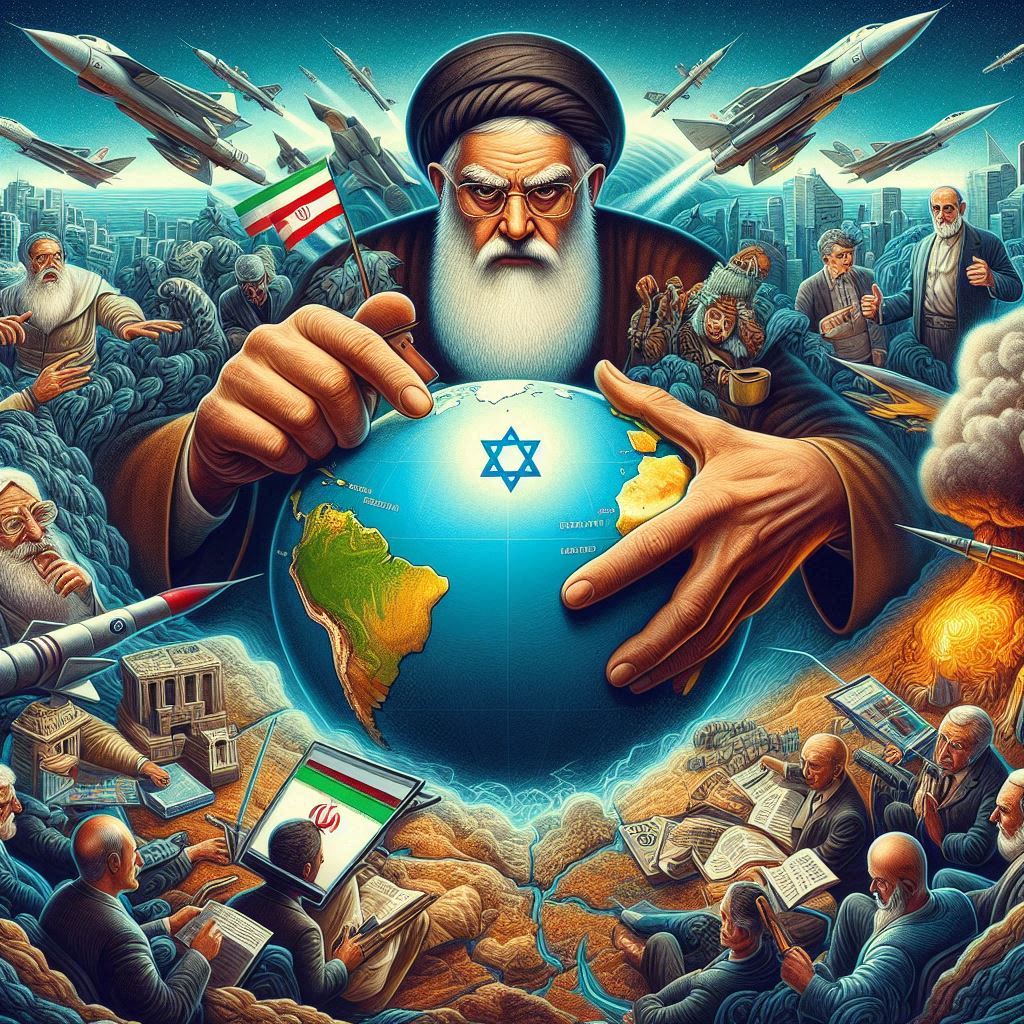
Escalation of Conflict: The tension between Israel and the Axis of Resistance, especially Hamas and Hezbollah, has intensified since October 7, 2023, with Israel’s military operations aimed at weakening Hamas in Gaza and Hezbollah in southern Lebanon.
Targeted Leadership Attacks: Israel has been targeting senior Hezbollah commanders, such as Foud Shoukr, as part of its strategy to destabilize the group’s leadership and infrastructure in southern Lebanon.
Iran’s Role: Iran, the main supporter of Hamas and Hezbollah, recently launched a ballistic missile attack on Israel, signaling its intent to protect its interests and the Axis of Resistance from crumbling.
There have been constant military exchanges as a result of the continued tension that has recently increased between Israel and the Axis of Resistance. The acts of Hamas on October 7, 2023, and Israel’s ensuing reprisal marked the beginning of the escalation. Benjamin Netanyahu, the Israeli prime minister, has concentrated on demilitarising Gaza, seeing a Gaza free of Hamas and governed by Israeli forces. Israel has won some battles and made great progress thus far in undermining Hamas’s influence in Gaza. There are still a handful of captives, meanwhile, and Netanyahu has stated unequivocally that Israel will only use force to free them rather than negotiate with Hamas on a political level.
Israel’s challenges extend beyond Gaza. In the north, it faces Hezbollah, a key component of the Axis of Resistance, alongside Hamas. Both groups are backed by Iran, which views them as proxies in its broader goal of regional influence, particularly under the pretext of liberating Palestine. This network, known as the Axis of Resistance, is fundamentally an Iranian project designed to project power and sustain Iranian interests across West Asia. Iran supplies logistical support, ideology, military training, and modern equipment to these groups.

Recently, Israel has adopted a new strategy against Hezbollah, termed “offensive through defense.” Israel’s long-term goal in southern Lebanon is to secure the Litani River, which it considers part of its territory. However, this region has been under United Nations peacekeeping forces since the 2006 Israel-Hezbollah conflict, with Israel eyeing the area despite the ceasefire.
Israel has initiated targeted attacks on Hezbollah’s military leadership, focusing on field commanders and key leaders. A notable example was the recent killing of Foud Shoukr, one of Hezbollah’s senior military commanders and the mastermind of the 2006 war, in an Israeli airstrike. Other leaders like Ali Karouki, Qassem, and Hezbollah Secretary General Hassan Nasrallah have also been targeted as part of Israel’s broader strategy to weaken Hezbollah’s leadership and infrastructure.
Israel has also employed unconventional tactics, such as using walkie-talkies rigged with explosive devices, as seen in recent incidents. This strategy aims to destabilize Hezbollah’s communication and operational capabilities.
While Israel’s incursions into southern Lebanon have been relatively small and isolated, Hezbollah continues to resist fiercely, targeting Israeli forces. In a recent attack, several Israeli soldiers were killed.
Israel’s attempt to crumble Hezbollah’s infrastructure in southern Lebanon faces challenges, as Hezbollah has retaliated strongly to Israeli incursions.
It would be correct to say that Israel is currently facing a once-in-a-lifetime opportunity to dismantle the Axis of Resistance. This network, comprised of groups like Hamas and Hezbollah, has long stood against Israel, pointing their guns towards it. Now, Israel has found a pretext to eliminate them. However, the fundamental question remains: What is Iran’s red line?
We must understand that the Axis of Resistance is an Iranian project, designed to secure Iran’s interests in the region. As the Axis begins to crumble, it remains to be seen how far Iran will allow this to go before stepping in. One notable recent intervention by Iran was its ballistic missile attack on Israel just two days ago, marking the second such attack this year (the first being in April). In this latest strike, Iran targeted Israeli military infrastructure with nearly 180 ballistic missiles.
As Israel continues its efforts to weaken the Axis of Resistance, it remains crucial to watch how Iran responds, particularly regarding further military interventions. Iran’s interests in maintaining its influence through the Axis of Resistance may push it to intervene more directly as the situation escalates.
The question that arises is: What is the position of other countries regarding the elimination of the Axis of Resistance?

The Axis of Resistance’s defeat offers a substantial benefit to the United States. American interests in the area have long been threatened by this network, which primarily targets American military installations in the Middle East. Iranian influence in the region would decline if the Axis of Resistance weakened, which would be advantageous to US strategic objectives.
But when you take into account other major actors in the world, like Russia, the issue gets more complicated. Russia has used the Axis of Resistance to its advantage in the war against opposition groups such as ISIS, particularly in Syria. Russia’s standing in West Asia would suffer from the dissolution of this partnership. Furthermore, the United States has been accused by Russia and the Axis of destabilising the region, and any moves by the United States to undermine the Axis would diminish Russian influence.
It is crucial to recognize that West Asia is not merely a battleground for the interests of foreign powers like the U.S. and Israel. True stability and prosperity can only return to the region when peace is prioritized. Groups like Hamas and Hezbollah, despite their claims, do not genuinely represent the aspirations of the people. These non-state actors, along with external interventions, must be curbed for peace to take root.
Likewise, external interference, whether from Iran or Israel with U.S. support, must be minimized. West Asia belongs to its people, and lasting peace will only be possible when the right actors—those genuinely invested in stability—are empowered, rather than terrorist organizations or foreign proxies.
References:
- https://www.hindustantimes.com/world-news/iran-attacks-israel-fires-nearly-200-missiles-pm-
- https://www.indiatoday.in/amp/world/story/israel-begins-limited-ground-operation-against-hezbollah-targets-in-lebanon-2609072-2024-10-01
Aayush Pal is a freelance writer on contemporary geopolitical developments. The views expressed in his work are entirely his own.
